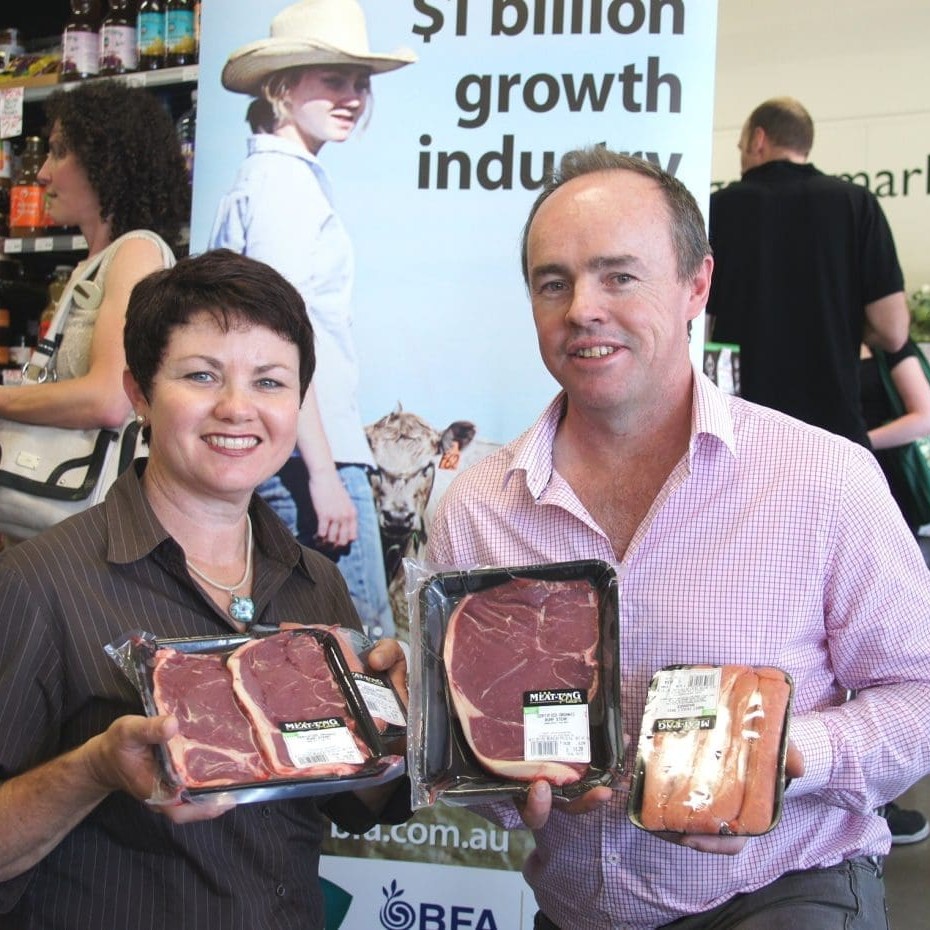 Two of Australia’s early adopters of Organic beef production principles have seen a lot of changes since first gaining certification 23 years ago.
Two of Australia’s early adopters of Organic beef production principles have seen a lot of changes since first gaining certification 23 years ago.
Attending the release of the latest Organics industry survey in Brisbane last week (see this morning's report "Beef leads charge on organic food growth,"), Dubbo beef producers Matt and Julie O’Leary have witnessed sweeping shifts in consumer awareness and demand for certified products since they started production.
The O’Learys are also co-principals, together with Simone Tully, in dedicated Organic supply chain, Australian Organic Meats.
Since gaining their A-grade certification in 1989, they said consumer awareness was perhaps the single biggest change.
“Twenty five years ago if I asked somebody whether they would like to buy some Organic beef, they would have said, ‘What’s Organic?’” Mr O’Leary said.
“There were just a couple of little boutique butchers in Sydney that decided to give it a go.”
“Now, everybody has a basic concept of what’s involved, and what the symbol stands for. That growth in demand from mainstream consumers is where the demand is coming from, which is leading to more producers coming on stream,” he said.
“It was tough going in the early years, but we always saw Organic as something that would continue to grow. For mainstream supermarkets to stock Organic beef on their shelves was a big breakthrough, and a lot of consumer education came because of that.”
“In earlier times, organic food was perceived as something for the greenies and the hippies,” Mr O’Leary said. “But that’s gone now:” it has become much more mainstream.”
Mr O’Leary agreed with Beef Central’s assertion that organic production had been a lot easier to conduct over the past two years of big seasons across Eastern Australia.
“But the snowballing of Organic is continuing on, and producers will continue to manage cattle programs in order to meet that demand, regardless of the seasons. The systems are getting better to manage cattle through the supply chain,” he said.
The certification process was also getting a little easier, and there were consultants and other around who could help prospective participants make a start.
“Some producers showing interest might take three or four years or longer to take the step,” he said. “We have near neighbours who had no interest in organics when we started, now looking at how they can engage.”
The O’Leary’s run both cattle and sheep on their property, Glenbyne, plus some certified grain for livestock use.
The operation also buys Organic-certified grower steers to finish, which could be a challenge at times in sourcing – especially over the last two years when breeders wanted to fatten stock themselves, give the big feed-bank.
“But those store cattle networks are emerging, and we have been dealing with the same breeders long-term,” Mr O’Leary said
Organic retail steps out of the ‘sarong’ crowd
 Modern organic food retail outlets have stepped out of the ‘sarong-wearing’ crowd into a much more professional, mainstream approach, it seems.
Modern organic food retail outlets have stepped out of the ‘sarong-wearing’ crowd into a much more professional, mainstream approach, it seems.
Debra and Gary Wray, who hosted Friday’s Organic report launch, have grown their Wray’s Organic Market and Café concept to eight stores – all large, modern, well-lit and abundantly stocked with a wide range of Organic products.
Shoppers visiting during Friday’s industry report release ranged from young mothers with prams to businessmen, and elderly folk.
One of the key challenges identified with organic consumers has been access. Shoppers years ago would drive half-way across the city to buy a piece of certified Organic beef. But the expansion in specialist retail outlets has greatly improved access.
‘Ease of access’ as an obstacle to Organic purchase among consumers has dropped from 54pc to 39pc in the past three years, testament to the growth in appealing stores like Wray’s.
“We decided back in 2008 to make our stores, themselves, certified organic,” Debra Wray said.
“We were getting concerned about consumers being told at markets and stores that certain products were organic, when they were not. Customers were confused, so we are quite proud of the fact that our entire shop and café carry certified-only lines, and we can prove it.”
Wray’s sources all its red and white meat protein in vacuum packed pre-pack form, chilled and frozen, from specialist Brisbane certified Organic butcher, Meateng Place. Beef supply comes from the Australian Organic Meats supply chain, processed out of Casino.
“Beef is definitely one of our real growing lines in terms of Organic sales,” Mrs Wray said.
However there was still a tendency in some circles for customers to be surprised to see red meat on offer in an Organic retail shop, confusing ‘organic’ with ‘vegetarian.’
